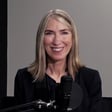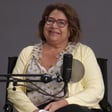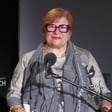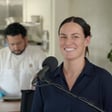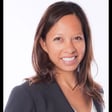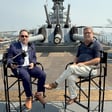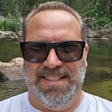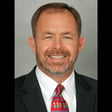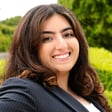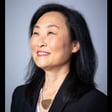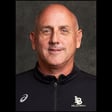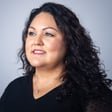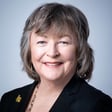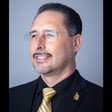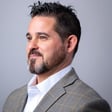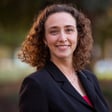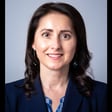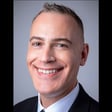Become a Creator today!Start creating today - Share your story with the world!
Start for free
00:00:00
00:00:01

University Relations
Chris Reese, University Relations AVP, discusses how CSULB is advanced by fostering support across a diverse group of stakeholders.
Transcript
Introduction to 'At the Beach' and Host
00:00:17
Speaker
Hello and welcome to At the Beach. I'm Dan Montoya, Vice President for University Relations and Development here at Cal State Long Beach. In this podcast, we share news and accomplishments and honors, personal stories and ways you can get involved with CSULB.
Chris Reese's Journey and Background
00:00:32
Speaker
Today, I'm excited to introduce my guest, Chris Reese, Associate Vice President for University Relations. Chris, thanks for joining us.
00:00:41
Speaker
Absolutely, Dan, happy to be here. So Chris, you you are the AVP. You've been at the university for quite some time. You oversee so many different things. And maybe let's start with telling us a little bit about your journey, kind of what brought you here, and you know and then we'll get into the different areas that you oversee. Absolutely. So I was born, no.
00:01:05
Speaker
ah um What brought me to the beach is a passion and a love for higher education. But that was born out of being a CSU grad myself. um Born and raised in Southern California in Orange County. I um went to Cal State Fullerton for my undergrad and graduate work. I ended up working ah for the state legislature for a number of years for a brief time in my life. I was a registered lobbyist.
00:01:33
Speaker
I got the bit by the political bug and really have been a political junkie ever since. um Really enjoy that space. But after a number of years being out in political service, got a call ah from Cal State Fullerton, they were looking to revamp their community relations programs. They're looking to really rethink how the university gets out into the community and connects and had a career opportunity in that space. And stepped into
Impact on Students and Community
00:02:00
Speaker
that.
00:02:00
Speaker
um spent about 11 years at Cal State Fullerton, enjoyed my time there doing a lot of the community government relations, corporate relations in that space, did a little bit of work in extension, which is its own unique world here in higher education and and truly um building up the university's community connections was a ah big passion of mine.
00:02:24
Speaker
everything I did there and and here is about building something that the future student can access and leverage. After a brief stopout, I came to the beach about five years ago and have have enjoyed every moment of every day, but I will tell you that the most impactful moment is when you see a student cross the stage and you think, you know, everything we do here in higher education, in our pathway to higher education, we contribute to their pathway to their future.
00:02:54
Speaker
and it's been a very meaningful ah part of my life. Yes, and I'm i'm so glad you mentioned ah graduation commencement because your team has been rock stars in that in the and the two years that I've been here. And you're absolutely right, when they cross the stage, it's a culmination of achievement, of generational change, of really impacting the region, the world, um in so many and
University Relations and Community Engagement
00:03:21
Speaker
in so many ways. And what I think in a lot of ways when we see that, we're kind of like silent superheroes, because lots of people won't even know that we helped them through this process. But all we know is that they're launched and they're gonna do some amazing things. so um So let's kind of get into a little bit about what you do at this university and the areas that you oversee.
00:03:44
Speaker
And the areas you oversee are very dynamic. in In other words, they really engage the university in so many different ways. And I think these podcasts are also to help people understand what university relations does. And your particular role is, you know, let's start with government and community relations. Talk to us about that and why government relations is so critical to the Cal State system and also our campus.
00:04:14
Speaker
And then also as you do that, because I know you're going to take all these in one shot, um the you know, what are the biggest challenges and opportunities that we face here locally, state and federal? Oh, we could be here for a month talking about that.
00:04:30
Speaker
but i'll I'll try to give you a snapshot. Government relations, if I can define it, is how we as a university work with our town gown, work with our city, our host cities, the places we live as an institution, how we as an anchor institution for our community contribute to the vitality of our region, how we work with our mayors, how we work with our council members, how we work with our state and federal elected officials with their offices.
00:04:59
Speaker
how we work with agencies and and the appointed officials and agency professionals. We're a state entity. We live in an intergovernmental world. There's layers of agencies that we interact with, whether we're managing a local water issue or working on homelessness.
Crisis Management and Government Relations
00:05:18
Speaker
Every issue that we tackle on and off campus is going to have layers of agencies that we work with.
00:05:24
Speaker
the government relations team's job is really to make sure that we maintain relationships. And I'm sure any of your podcast listeners know a lot of what we do in university relations is relationships. And so this is about maintaining effective relationships so that at any time, whether it's a challenge or an opportunity, the institution can bring a coalition together of our elected officials, appointed officials, agencies and friends, and be able to create opportunities. Right. And so just real quick before you go into that second part of the question, let's just share with the campus community and our listeners of how how kind of an example of how that takes place. So when there's something that happens on campus, the elected officials are calling you saying, Chris, what's going on?
00:06:11
Speaker
um We hate to get into crisis management, but crisis management is probably the best example, right? So a something is happening. It's been posted on social media. There's an accident off campus or an issue that's happening. A very relevant one is we had a gas leak at one point, and we get our council member and our mayor and our assembly member ah texting, calling. They're usually coming direct to me saying, what's going on? What's happening? Give me the details.
00:06:42
Speaker
And with government relations being a point of contact for these folks, they're not calling the central phone. They're not calling all over campus to try and get an office to pick up the phone. You know, it's our job. We can directly connect with emergency ops, get the answers back to them. They can feel comfortable, but also they can inform their constituents. Because what happens is what we don't see is the hundreds of people who are calling their office panicked, expecting them to know the answer. And so we're the ones that will really work with them to make sure they do know the answer, often as much as we can proactively, sometimes reactively. On the other side of that, you have a number of elected officials who would like to take on a big challenge in the community, right? right They want to address a land use issue or or a problem that's happening. And rather than
00:07:28
Speaker
you know try to go out and say, who could help? They call us and say, who's the faculty member that's doing research in this space? Who's the smartest person that we can pull in and we want to go to our institutions and get that get that person in the room? And so they're not trying to call every dean in every department and find somebody, they're coming to us and they're leveraging our opportunity to really be that pinpoint for them.
Celebrating Olympians and LA 2028 Plans
00:07:51
Speaker
There's also positive things that happen, right? You know, like, you know, La Tana Sheffield now in the Olympics. And there's other things where the mayor or some of these elected officials will say, hey, I want to be part of the excitement that's happening at Cal State, Long Beach. Talk to us about.
00:08:05
Speaker
that and how that happens and and why it's good for not just the university but the community. Yeah, so in any number of so circumstances you're going to have these kind of agendas of the moment. Something's happening in the world that's ah ah a great story. There's something happening on campus that's a great story. there's um Students are getting involved and and they want students to be a at the table for a conversation about big news. Latanya is a great example. The Olympics are a huge thing for our country. It's a pride point for our city. There's so many Olympians from Long Beach, but the most ah prominent is the fact that we have a head coach in the Olympics for Team USA coming out of Cal State Long Beach. And so what can we do to not just
00:08:50
Speaker
appreciate Latonya's service and and celebrate her service, but take that moment and really talk about all of the opportunities that come back to our community because of that. And so you you do get the opportunity where the mayor calls and says, what can we do? What is the opportunities here? And the idea ideation happens and we end up coming up with a couple ways. A good one was you you know going live and bringing the mayor into that conversation with Latonya while she was in France, and it's a great opportunity just for him to say, hey, the city's behind you, you're ah you're a champion of the city, this is really bringing long breeds to the world. i'll I'll give a past example, we had a lot of that when our athletes are going to NCAA tournaments. right A number of our elected officials will tell you,
00:09:39
Speaker
You know, our athletes are the best brand ambassadors for Long Beach that you'll ever find because they wear LB all over the world. And so when they go to the NCAA tournament, they are brand ambassadors for a Long Beach. And it's this opportunity to really bring our elected officials together, have all of them sharing that story.
00:09:56
Speaker
and and create kind of this synergy of uplifting our community. um But it's also going back to talking to our community and saying, hey, isn't this a great that we're showcasing Long Beach to the world, but how can we also get you involved? So it's ah it's a collaborative way that we can bring people back into the university as well and get them connected back, even if
Funding Challenges and Partnerships
00:10:16
Speaker
they're not an alum. Right.
00:10:17
Speaker
I want to go back to your question about kind of the biggest issues trending and in government relations. Real quick, um before you do that, I want to mention that in 2028, we are going to be part of the Olympics as well. And you're part of that conversation. well Could you share a little bit about what maybe, maybe not so much in detail, but maybe some of the planning that is happening?
00:10:40
Speaker
LA 28 is a massive lift. every Every Olympics brings with it its it's logistical challenges, which are are helpful for people to tackle because it creates new relationships and new new collaborations, but also huge wins. So um the sports that are coming to Long Beach are going to be a great opportunity for us to get students out and involved.
00:11:01
Speaker
We're talking amongst the five CSUs in LA County, how we can have student internships, student jobs, student careers affiliated with the Olympics. We're working with the Mayor's Fund in Long Beach around Olympic engagement for student and youth employment, and also how we can make sure that they get an opportunity to see the games.
00:11:20
Speaker
But the run-up to the Olympics the next four years, ah once we close the Olympics in August, the next four years is about Olympics in LA and particularly Long Beach for us. right So it is going to be employment, engagement, nonprofit community development, bringing out a lot of opportunities for our students for the next four years to have careers that are Olympic-oriented in that realm.
00:11:41
Speaker
And I'm so glad you mentioned that because again, people think of all the Olympics is here, but there's so much workup that needs to be done. And so, ah you know, I'm, I'm glad we're mentioning it now because people will start to see it in the next, you know, four years and how it it rolls out. So thank you for sharing that. But yeah, let's jump back to the question about, you know, what are, what are these challenges and opportunities that we face in advocating for the beach and locally and state and federally?
00:12:08
Speaker
ah The challenges are probably numerous, but fundamentally it comes down to you higher education is an infrastructure of the state. It's one of the greatest economic development investments the state of California has ever going to make. It's also one of the greatest investments the federal government makes when they put Pell funding in front of our students. They elevate and lift up communities. If you look for what's going to transform a community,
00:12:32
Speaker
um Yes, we can invest in a number of projects, but the thing that's really going to transform it is institutional focus on educating that community and helping them create career opportunities for themselves. So when it comes to how we deliver those services and what can we do, um Functionally, higher ed has had to deal with the fact that hybrid and virtual and in-person and what what the future of higher education looks like has been a big challenge. Talk to our academic affairs and student affairs folks about that. yeah But for us, it's about how the financing of that happens. The the oftentimes state of California challenge has been you know inconsistent funding levels, growth and shrinking based off of the economic returns of the day.
00:13:16
Speaker
And so really finding consistent funding formulas, finding long-term structural funding for higher education has been one of the biggest political challenges. um That's going to be at the federal level, at the state level. At the local level, I think our biggest our biggest challenge is it was really turnover and leadership. you know Every time leadership turns over in the elected office, you have to rebuild those relationships. So it's about creating these consistent long-term relationships, even as offices turnover. And that's about building trust, having having friends in multiple different places, um and really showcasing that we do work, good work off campus, right, often. From an opportunity side,
00:13:57
Speaker
You know, the the places that we and the beach particularly have an opportunity is really thinking beyond our budgets, really thinking outside of our typical political spheres and looking at the research opportunities for faculty and staff working with federal and state agencies, county agencies, and
Relations with Tribal Communities
00:14:17
Speaker
the city. One of the things that I'm i'm most proud of for the beach is our Deep deep-rooted relationship with our city ah very rare that you see the type of connections We have between our host city and our our campus in higher education you i would agree And so that's the opportunity to continue to invest and deepen those partnerships The city now has a partnerships lead in the city manager's office. We have a partnerships lead and in our office, and it's about creating these long-term institutional partnerships that return not just career opportunities for our students, but ah bring back, you know, continuous research, faculty engagement, community engagement for the Beach. Yeah. Well, that's one area.
00:15:04
Speaker
so um Community and tribal relations. So we often emphasize our commitment to the public good. How does your work in community and tribal relations align with that? And why have tribal relations become so significant here at the beach?
00:15:22
Speaker
That's a great question. So the the beach has had relationships with our tribal communities for a very long time, a very positive relationship building out of the American Indian Studies Program, um a celebrated program in academic affairs for its work in both engaging students around American Indian Studies, but also building up a community in the American Indian Student Association and and other spaces.
00:15:51
Speaker
what we have not done so well is really take a ah critical look at the collections that we have on campus that have historically come in all the way back to the founding of the beach. We have not repatriated items for a very long time and we need to be more consistent, persistent, and outright intentional about having ancestors go back home about working with our tribal communities in a direct way to ensure that how we treat and care for ancestral and cultural items on campus are done in a collaborative and consultative way with their insights.
00:16:34
Speaker
Why has it become a bigger deal? It's not just because the legislature has told us. I think it is meeting the moment. right In this moment, it's an opportunity to apologize, to say we've not done right and we have the opportunity to do better. I am very proud of this institution for investing its time and efforts in hiring and a director of tribal relations and hiring a tribal cultural collections manager.
00:16:58
Speaker
and looking at the repatriation process very critically and making sure that teaching and learning is not the focus of those collections, but in fact is de-emphasized as we look at repatriation and really working with our tribal communities to elevate the opportunity to return, repatriate, even up to rebury ancestors, take care of those collections. right We have a special emphasis on this campus because we have also um turned a turn the corner on a large piece of land on campus, which is unique in higher education. Nowhere else has an on-campus sacred site. We have a sacred site, Pavunga, which is ascribed to a number of tribes, both the birthplace of their God and a holy site.
00:17:48
Speaker
right Pavonga is you know a large area adjacent to Bellflower. We've been working with the tribes for a number of years to take care of the land, protect the land, conserve the land. And in fact, anyone who's listening that is looking for opportunities to conserve the land, we are looking for a partner to really put it into long-term conservation, um celebrating having a sacred site on campus. Where we go from here,
00:18:15
Speaker
um I think is the opportunity of the beach to really look at our alumni base that have come from tribal communities, to look at the support services, the scholarships, the opportunity to really serve the American Indian and Native communities, and really look at how can we be a future home that is celebrated in building up support structures for those communities to come here. and And we want to be that environment. We've long served the American Indian community's needs through the work that we've done in academic affairs, and we're just we're building it across the institution.
00:18:49
Speaker
Yeah and and again I commend you on that work because it it takes years to develop trust in those relationships and then just the partnerships that need to come together ah to be able to achieve that is is no small feat. So I know you've you've been on the grind for many years so and the achievements that you guys have already ah done is commendable so a good
Event Planning at CSULB
00:19:12
Speaker
job on that. so That's two areas that you can spend all day on those two. But let's talk about university events. I mean, this is a small, mighty group that does some amazing work. um And the people that work on this team are always with a smile and they they just love what they do.
00:19:31
Speaker
Talk to us about that team, how many events they do yeah approximately in a year ah for the university, and then some of the ones that you really love to be a part of. And then lastly, mention the 75th. Absolutely.
00:19:49
Speaker
um So that team is, as you said, small but mighty. It's it's three professionals. Event professionals are unique in this in the world, ah mostly because they are happy to be doing the grind, right? And it is it is often a grind. You're going all the way from concept through execution, thinking about budgets, logistics.
00:20:11
Speaker
you know, when you go to an event and anybody goes to an event, somebody thought about the flowers, somebody thought about the food, somebody thought about the tablecloth, somebody thought about the napkin, somebody thought about the slide deck, somebody thought about where do we position yeah um the screens. yeah Every single component has to be thought through. And so to have a professional events team on this campus who's thinking about our university-wide events, who's thinking about the events that are that are externally focused and and living their life really deeply in that space is is wonderful to have um for our team particularly it starts with commencement so that lives in our unit commencement is I always say a small wedding for your favorite hundred and fifty thousand people you know over
00:20:58
Speaker
Five days, we host about 150,000 people in the last four years. We've done that at Angel Stadium. It's been a unique and wonderful experience to see the event transition from yeah over the last five years.
00:21:13
Speaker
What today it looks like is you know every student gets 12 tickets, we bring families, we bring students in, we stage it, they get to walk the stage, they get a diploma, they celebrate on camera, and after you know five 12 to 14 hour days, we all feel exhausted. We walk out even after that last ceremony and we see the hugs and the crying and the joy and every moment of that work is worth it.
00:21:41
Speaker
um I also think that that's the first alumni experience. So in our world, your last student experience is your first alumni experience. And that really kicks off for me what we do in events from there forward. How do we make sure events are are really built so that the institution has it is is seen in a positive light, but really it's an opportunity for people to engage back. So that team will host events anywhere from five people to 150,000 people.
00:22:10
Speaker
Large-scale events across the campus, things like our Distinguished Alumni Awards, 49 under 49 was an event we launched this year out of alumni. There are also service providers to donor events, stewardship events, things things like large affinity events where we want to bring back our legacy society, our carillon society groups who have who have given to us and and supported us over the years.
00:22:34
Speaker
all the way down to small intimate meals with somebody who we're talking to about their experiences, their life here. Medium-sized events like our in-person fireside chats that we have at the Alumni Center where we talk to a recent ah or a senior level alum about their life experience and
Alumni Engagement and Career Support
00:22:55
Speaker
everything in between. They host anywhere between 75 and 100 of these a year. um Big ones are, you know,
00:23:02
Speaker
big ones are only a few, probably about five major pillar events every every year, but a lot of medium and small events ah through that team. And you know it it really does range every year. I can't tell you there's a single year where it's the same exact event. right And what we're always trying to do is go behind the scenes, think about, you know, did we hit kind of our our performance indicators that we wanted out of the event? What are the metrics of success that we delivered? And how can we make that event better in the next year? and And what I'm most proud about that team is they certainly do not rest on their laurels. You know, every time they host an event, they come back, they they rip it apart, they think about what could be better. we We continue to make that beach experience that you have when you come back here better.
00:23:48
Speaker
And and that's that's the value of having a professional events team in that space. Yes, I agree. And they're amazing because I get so many compliments on the work that that team does and how the event has gone. And so it's it's a fun team to be around. And and when you there's times where they get together on Fridays and just hang out. And they they genuinely just enjoy being around each other. And that that is a testament to creating the culture that we have here in URD. So um another area that you oversee is
00:24:21
Speaker
um leadership giving, annual fund and I'm going to mention alumni too because we talk about building pipelines so much in in our division but also as part of the university. So we think about as annual giving as the first intro into philanthropy but then also how it morphs through their experience here and and into being an alumni And I know that you we did an alumni survey, and we got some really great results, and we heard what the alumni were asking us to do. And your team has done a wonderful job of executing on those requests of our alumni, and you've had some really good results which have led to additional career and professional development opportunities, which our alumni asked for. And and we're seeing great results. so
00:25:12
Speaker
um That's a huge dynamic to cover, but maybe you can share a little bit about the work that your team is doing in this area. So you know we talked about events and that first alumni experience, right? That's your first interaction with the institution as an alum. And and we talked about government, community, tribal, other events. Those are all oftentimes your first interaction back to the institution.
00:25:38
Speaker
um Since either going off as a student or really as a community member your first interactions back alumni is also in that same space right the first time an alumni comes back or hears from us is is probably going to be through the alumni engagement team or as you mentioned you know crowdfunding annual getting leadership giving so Altogether, when I look at our our team as we cross kind of all of these various dynamic areas, we are your first interaction back with this institution. In many ways, for people who are coming back and and wanting, raising their hands, saying, I want to connect, we're that first entity that they're going to experience. and so
00:26:18
Speaker
leading this team together has really been about wrapping our arms around. How does that, how does somebody coming back wanting to be involved at the institution, how do we make sure they have a positive experience right and we're available? Alumni being so critical to that.
00:26:35
Speaker
alumni really looking outwards and saying what does a modern alumni organization need to look like in order to serve the alumni's needs today and so we have a number of surveys vehicles that we look for we kind of look for that what are the signals that alumni giving us and over the last several years every survey career in professional services and moved up. And this year it was the loudest bell towards ringing. And I think credit to that team, they've they've known it. We had launched the 49er industry chats coming out of COVID, really thinking about what are we doing today to serve alumni where they are. And that's to me what a modern alumni organization does. It doesn't ask you to do what we want you to do. It goes to you and says, where are you in your life? Where are you in your trajectory? And how do we provide you something along the way that benefits you and and really reminds you that we're a lifelong learning partner with you? What I'm happy to say is we are really aggressively pursuing that goal. Our upcoming strategic plan for alumni will really look at all the career and professional services we can provide and where can we be a concierge to more and more and more career professional services.
00:27:47
Speaker
We've engaged with the Career Development Center, so we we had a recent alumni boot camp where we looked at any alums who don't have a job. Here we go. Let's get you a job. Let's figure out all the strategies for success. We're working with the the College of Professional and Continuing Education for alumni programming that will serve mid-career and future alumni who are looking for career pivots. How can we be that partner for you?
00:28:12
Speaker
and really looking across what we call the beach journey. After your time as a student, how are you integrating with us from your earliest all the way through your retirement and working even with OLLI, where we have our OSHA Lifelong Learning Institute for retirees, so that you have career, professional, education opportunities, opportunities to elevate your skills professionally, or a service provider who's willing to help you find resources internally as you're looking for that pivot.
00:28:40
Speaker
in alumni, and that's really been the focus of alums. so um Everyone who walks through our Alumni Center, which also lives in alumni, come visit at the Anani Center, everyone who walks through the door is saying, how how can you help me with a job? Right. And we're really taking that to heart. That is what our organization is focused on right now.
00:28:59
Speaker
You lay out this amazing foundation of how alumni and community members can get involved. Can you go through that process a little bit more and kind of lay out a little bit more specifics? Absolutely. So I'm a huge believer in time, talent, and treasure coming back to campus and participating in any way possible that you as an alumni or friend really want to be involved in campus. So if you're a young alum, you graduate, you come across that stage,
00:29:27
Speaker
and you want to stay connected to campus. Our first efforts really are working with you on your career journey. So we've launched a program called Beach Journeys that's really focused on how we help you through boot camps, working with the Career Center to get that first job.
00:29:42
Speaker
As you move into your career and you're really thinking about ways to stay involved with campus, we focus a lot on your expertise, you as an individual. What are the talents that you want to showcase? What's your story? Getting you back into the classroom, getting you connected as a mentor for our students today. Working through what we call Beach Nexus, which is a platform that has rapid mentoring or long-term mentoring programs.
00:30:07
Speaker
We have very specialty email and mentoring programs, so we have efforts around first generation, like getting you yeah together with first generation students to really talk about that unique experience and what you've experienced in your life to come back and help. um Even participating in sports and even you know performing arts,
00:30:27
Speaker
For a lot of people, they don't consider being in the audience as participating, but for the students who are in those sports and performances, you being an audience member matters. It means that they have somebody watching what they do and celebrating their expertise. So any way that you think that you could come back and give your time or share your talents, we're here. Through the alumni website, you could find access to all of those resources, reaching out directly to the alumni team,
00:30:53
Speaker
or through our community relations and community page. You'll find a lot of those opportunities.
CPACE and Community Education
00:30:57
Speaker
We really look for ah folks to come back to campus, stay connected throughout their whole journey. As you get into your senior level career, you're really looking at retirement opportunities. We look for C-suite members all the time. Anybody who's thinking of giving back and wants to sit on a board, give some service to boards,
00:31:16
Speaker
We have curriculum opportunities to talk about what are we doing in the colleges. Our deans are always looking for individuals to advise them on what's happening in major industries. We also do that for our alumni. We host senior members in their career talking about what their industry is going through right now through our industry chats.
00:31:34
Speaker
There's a lot of opportunities to give back. And as you retire, we have our OLLI program, the OSHA Lifelong Learning. And we really believe that we're your lifelong learning partner. So we even promote getting you back into the classroom, even as a retiree, and really talking about what can you learn as a retiree and what can you share. All right. um So I don't want to say that the university is just for alumni. And so we have CPACE as an opportunity. I think one of the things that we've seen is Most of the people that interact with us, and even our alumni, are not just people that we we normally associate with on a regular basis. It's people in the community, people who have moved here from other places, and are looking to connect to those key areas of the city of Long Beach, who are in the region. So talk to us a little bit about your partnership with CPACE,
00:32:28
Speaker
And what we're trying to do with that and how we're highlighting it for the institution to to bring people to to get adult education and or continuous education. Absolutely. You know, the university serves as an anchor in our community, yeah right? We are not just a place for undergraduates. We're a home for a lot of our residents. They come here. They enjoy the activities of campus. They enjoy athletics and performing arts, as I mentioned.
00:32:54
Speaker
They enjoy just walking around campus. We are many times a home away from home for a lot of individuals who are coming to Long Beach. But for us, Long Beach is also a place that matters for what we do for the rest of somebody's career. You may be a graduate from another university, but when you're working, living, playing in Long Beach, you're ours as well. We want to work with you.
00:33:16
Speaker
So we're focused a lot on what do we do for mid-career individuals? How do we help you on your journey? You may have come from across the country, but once you're in Long Beach and you're looking at those career pivots, we're your home. So we're spending a lot of time with CPACE, or it's the College of Professional and Continuing Education, looking at certificate programs, microcredentials, degree programs even, for those who are working in Long Beach. What are the major careers in our region? What are the major opportunities So we're looking for those opportunities to help somebody elevate to their next career level. And really, it's not about whether you're an alum of the university or not. It's about how we can help better serve you and our community. And we work with a lot of community partners to do that. We're often working with the city, the Long Beach Chamber. We're working with other major institutions in town. We're working with our education partners. We're working with companies that have a longtime presences here in Long Beach to really understand what are the opportunities.
Space Industry Engagement
00:34:11
Speaker
I'll talk about one specific what area, if it's okay. We're really looking at the space beach communities. yes What's going on around space companies coming into Long Beach? That's a huge influx of folks moving from out of state into Long Beach and opportunities for our students to elevate into those programs. But it's for us, it's a place where we really need to refocus. We have a long history in aerospace. We love our aerospace companies for what they've meant for jobs for our students.
00:34:37
Speaker
But this is also an opportunity for us to look at those employees there and think about how we can build programming that helps them elevate in their careers right and keep them here in Long Beach and really help Long Beach grow. Yeah, no, I think you're absolutely right. And in when we think about workforce development and corporate partnerships and and just partnerships in general that's what we look for but we I think of Cal State Long Beach as producing a product right and and also we want to position that product into these industries and these partners because most of our
00:35:15
Speaker
ah you know alumni or leaders within these companies work for them and so we want to continue to develop that opportunity for these these industries to come and partner with us on research or partner us with student projects and different consulting opportunities but you're absolutely right so and okay this is this is a city within a city and it's there's so much to Cal State Long Beach And you have
Team Motivation and Roles
00:35:41
Speaker
your hands full. You really do. And again, I appreciate all that you do. So let's talk about, you know, what keeps you motivated in your role and and how can listeners support the work of you and your team.
00:35:56
Speaker
So what keeps me motivated in my role day in and day out, um you know, I would invite anybody who wants to see it, come out to a commencement, watch that student walk across the stage, watch them graduate, think about the impact in their life.
00:36:12
Speaker
Think about what's going to happen for their families. Think about what we mean in the transformation of their future. And you will never question what motivates any one of us to do a job. yeah The place really is, incrementally, I have a little bit that I helped make that student's life better. I helped their career. I helped their family. I helped their education. The work that we do means something to them, means something to their future, means something to our broader community.
00:36:37
Speaker
the Other part of this is this is a great place to work and it's a bunch of great people working for a leadership team that truly has students focused focused first on what they can do working with a ah unit in you are indeed and really thinking about all of the external facing entities of this university that are just trying to help build up better opportunities for our students, faculty, and staff every day, day in and day out. They just want to make things a little bit better and help reconnect individuals back to campus. um My own team, right when I think across the engagement leaders who are all just every day trying to think about one better thing they can do for our students, faculty, and staff on this campus, one better thing that they can bring in
00:37:22
Speaker
really amazing humans who are an absolute joy to work with. Fun, a little bit of chaos, and my favorite type, really just always trying to have a good time while we also create amazing opportunities. right um You know, my discovery team, this is the group that When somebody's ready to give, they're creating opportunities for them to give. They're thinking through, what's that first giving opportunity? How can I help somebody see an impact made from a $25 gift? They spend a lot of their time thinking through, where can philanthropy be impactful? And how can I find somebody's passion and marry it up with what we do on campus? And I will tell you, it doesn't matter what your passion is. We can find somebody on campus who will who will work with you and create amazing opportunities out of that.
00:38:11
Speaker
And so they're looking at how can we make every $25 gift as meaningful as the next? How can we help you find your passion on campus? How can we help you come back to campus and really engage with our students? How can we be an asset to our community? How can we build up our our local economy? How can we build up our students' futures? And you know you can't you can't find better motivation to come to work than that.
00:38:37
Speaker
So Chris, um again, we've kind of highlighted all the areas that you oversee. And can you, in maybe five points, and you're really good at this anyway, summarize what your team does and how it's relevant to not just URD, but the institution? Because that's that's really what this series is about, is helping people understand the different parts of URD and and how it plays a role in the overall picture of the university. So just a quick synopsis of you know university events, government relations, tribal relations, partnerships, civic engagement, and alumni paired with you know, crowdfunding, annual giving, leadership giving, and some central giving opportunities. All of those teams may seem big, vast, and disparate, but in reality, the first time somebody comes back, whether it's your first alumni experience through commencement, or your first giving experience through a crowdfunding, or your first alumni event attended, or your first community event attended, the first time you come back and interact with this institution,
00:39:46
Speaker
We are the people who are building that experience for you and making sure that we connect. We're the lead advocates for the institution. We're the lead community relations arm for the institution and how we connect and build partnerships with our community. We are oftentimes the the face that you're going to see when you want to engage with us or find a new relationship with us. And more than anything else, we're the concierges of your experience outside of your student activities here on this campus.
Future Plans and Celebrations
00:40:13
Speaker
That's great.
00:40:15
Speaker
So um again, thank you for your leadership. Thank you for all the work that you do. um It's so amazing to see it. And I know your team loves you. It's it's Wednesdays is your team's day in the office. ah You see the energy. It's great. And everybody just kind of you know is drawn to you for that strategic thought process and and i I even enjoy just talking to you on this strategic level because you bring so many elements to the table. So with that said, talk to us about what's coming down the pike. I know this is a very interesting year. It's an election year and I know you're involved with with our student groups and ASI on on that. Maybe you can talk a little bit about that.
00:41:01
Speaker
And then you know as we move into 75th, some of the other things that the you know our audience may want to consider being involved with as we carry out our 75th year celebration plan. Absolutely. So I know you had Kevin on and ah huge celebrations to the people who have done amazing work over the last several years in closing the No Barriers campaign. You cannot underestimate the impact of a campaign, both exceeding goal and celebrating the institution the way it has. yeah But it queued us up for a 75th anniversary in a beautiful way. We're about to walk into a year celebrating 75 years of impact. We're kicking it off with a concert on September 28th in front of the Walter Pyramid, free for our community members. We're inviting everybody to come out. But really, as you know, Dan, that just celebrates. That starts the year. We have a whole year where we're going to be celebrating. And and we hope people go online and pull the calendar up and come out to something, really find something that matches with
00:41:59
Speaker
you know what they want to do to celebrate the 75th anniversary 75 years of a campus is a no joke right but really it's how does that kick off our next 75 years how does that set the stage for where we want to go you mentioned the elections you know 75 years 75th anniversary that'd be a huge year for any campus But we have an election year. And so for my team, you know the next six months are really about um how how the students get engaged in elections. We have a program called Ballot Bowl that our ASI leaders ah run. But my team works with them on how we can get students registered, certified, make sure they're participating, right getting that student voice out there. And then after the elections happen.
00:42:43
Speaker
Who, what seats change? Who do we need to go introduce ourselves to? How do we, you know, that whole process of working with like elected officials starts all over again and we have all the fun and we work hand in hand with our student government. They have their own group that does this work and our group does this work in terms of government relations and and working with student outreach and votes.
00:43:05
Speaker
And we do it constantly. for So for the next 80 days, that's my life. But for the next six months, it's really about pre-election and post-election and the changes that come from that.
00:43:17
Speaker
It's a busy year. right um And I will tell you, we've already started planning commencement. And and what what happens with commencement in the next year, you know as we wrap up a 75th anniversary, we'll really be talking to the students about what it means to come out of 75 years of graduating students. yeah So there's a lot on the radar this year.
00:43:36
Speaker
Well, ah the the beauty of it is that it's, again, it's a living, breathing, working relationship with our community. um and And there's so many things that are happening, which is exciting, and it's a great way for people to interact with us. So we encourage everybody who's listening to to really tune into our website and some of the ah social media platforms on what's going on.
00:44:01
Speaker
In addition to that, we have, you know, athletics and we have some new coaches in basketball and baseball and we have, you know, soccer is going on now and volleyball and so many different, you know, wonderful events happening. And I don't want to understate the value of and the work you do with the community and just kind of informing our community about what's going on, being a good neighbor. So you've done a really good job of that. So we really appreciate that as well.
00:44:30
Speaker
So as we wrap this up, Chris, is any closing thoughts or any any additional Wisdom that you want to share on as we finish up the podcast additional wisdom or closing thoughts, you know um Whether you're a student trying to navigate the education process here You're an alumni trying to navigate getting involved You're a community member who just wants to know what's going on or how can I better engage with the campus? What can I do here? It can be
00:45:01
Speaker
big we're a bureaucracy we're a city in a city as you said and and we often are ah moving very fast and things things happen where I will really close as saying we have teams that want to work with you when you're ready to engage with us when you're looking for that opportunity to connect back with the campus we're waiting we're ready so do not ah fear going online to our CSULB.edu backslash alumni or CSULB.edu backslash community or any one of our community facing pages pulling the team up and just reaching out because they will absolutely help you find that thing you're looking to do on campus.
Conclusion and Call to Action
00:45:40
Speaker
I have a number of just amazing professionals that can't wait for
00:45:45
Speaker
residents, alumni, friends, people who are just looking to partner, companies that want to partner with it. They're always on the ready looking to help and make those connections. So when you're ready, we're here. and We can't wait to work with you. That's awesome. Well, there's one topic that I really we didn't even get to. So we're going to have to bring you back and talk more about LA 28.
00:46:07
Speaker
because that's in the distance. We we got to see the Olympics and some of our coaches and and athletes in the scene, but there's a lot that's going to be happening in the next four years. so i won't even I won't even mention that and have you go there, but stay tuned because that's coming.
00:46:26
Speaker
And so Chris, we we're so happy that we got to have this conversation and learn a little bit more about you and your team and how valuable it is to not just URD, but the university. So again, thank you. And I'm excited about our 75 years. Thank you for sharing your insights and experiences, Chris. And this concludes another edition of At the Beach. I'm your host, Dan Montoya, Vice President for University Relations and Development.
00:46:53
Speaker
Thank you for listening and Chris, we will end this on a Go Beach on three. One, two, three. Go Beach. And go vote. Go vote. There you go.
